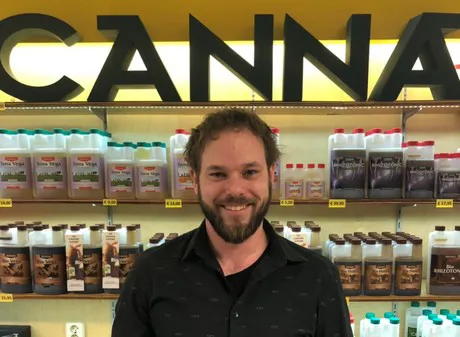There is still a lot to learn about the cannabis plant. For decades the cultivation of this crop has been prohibited, thus preventing any growing practices to improve at the same pace as other agricultural sectors. Rising from this underground status, cannabis too has joined the large-scale agricultural sector. However, this hasn’t happened in a very smooth way. Adapting to a new set of rules can be very challenging, especially when a grower has to deal with the regulatory environments around which cannabis revolves. A number of operators rushed into building growing facilities, either indoor or greenhouses, believing that those would be profitable merely by setting them up. As large-scale agriculture teaches, being successful in such a sector is not that easy: there are many elements that factor in, and taking them into consideration would represent the difference between success and failure. One of these elements is labor.
The labor issue
Labor is one of the challenges that the current cannabis industry is experiencing. On the one hand, there is a widespread lack of specialized workforce, and on the other hand, labor can be quite costly. This aspect ultimately affects the prices of the end-product, which could be higher than anticipated. However, as ever more countries finalize regulating cannabis production, new opportunities open up. Hidde Siers is founder and owner of Plantarium, a legal cannabis grow shop in the Netherlands and also a consulting company. “We have been working with a great number of small growers,” Hidde explains. “Over time, we have gathered all sorts of data and information, with regards to strains, how they are grown, and which condition these are going to treat. By using all this combined data, we have started our own consulting company. We have been working on many projects globally: in Europe, North America, and South Africa. Currently we are working on a project in Macedonia.”
 Hidde Siers
Hidde Siers
Growing in North Macedonia
According to Hidde, the operation in North Macedonia is going to be a fully GMP compliant indoor facility that will aim at tackling the dried flower medical market. “I think the situation in countries like North Macedonia is very promising,” Hidde points out. “There, 15 licenses have been issued thus far. Growers are not limited to a plant count, though they are limited on the sq.ft. they can use. At the same time, current regulations do not allow for export. However, things are expected to change in the near future. That is why many North Macedonian growers have been producing large quantities of product, part of which is going to supply the local demand, while the remaining is put on hold, waiting to be exported as soon as rules allow it.”
Poised to be great
Hidde further explains that Macedonia has many advantages when it comes to the medical cannabis industry. “Macedonia is going to be one of the countries that will supply to the EU – which is expected to be the biggest medical cannabis market, according to Prohibition Partners reports. This is going to be one major advantage, as EU countries do not have to resort to companies overseas, because they will have a reliable supplier ‘in the neighborhood’. Another major advantage is the labor cost. Labor in Macedonia is rather cheap; therefore, I can totally see companies being interested in investing there.” According to Hidde, cannabis products have a very long shelf life – as long as they are stored correctly, that is. “Cannabis can last up to two years without getting spoiled,” he says. “Thus, it makes a lot of sense to commence operations in those places where producing cannabis is cheaper; exactly as happens with all the other agricultural sectors. Currently, many Asian countries are opening up to cannabis production, with Thailand above all. There, labor is very cheap, and cannabis can be produced at highly competitive prices.”
A sustainable future
However, labor is not the only major challenge that the cannabis industry is experiencing. “Sustainability,” says Hidde, “is a very pressing problem, and many companies are already making huge steps to address this issue. In the future, there will be a lot more knowledge, and growers will be able to optimize their operations so that they will not only contribute to making people healthier, but also to making our planet more livable.”
For more information:
Plantarium
Gerard Noodtstraat 50, 6511 SX Nijmegen
+31 (0)24 - 3888 408
[email protected]
plantarium.nu
